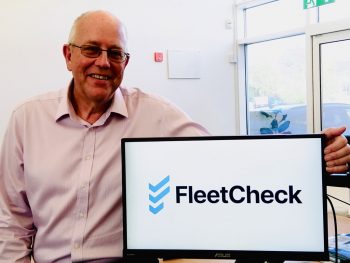E-fuels are not a genuine widescale solution to transport decarbonisation but could play a “limited role” for fleets in the future, says FleetCheck.

The fuels – designed to be carbon neutral – have hit the headlines over the last week after several EU countries asked them to be included in future car production legislation, circumventing a 2035 internal combustion engine (ICE) ban.
And in the UK, MPs on the Transport Committee have spotlighted the benefits of synthetic fuels and biofuels in a recent report that says the EV charging infrastructure is not adequate, and there are insufficient raw materials for EVs.
But Peter Golding, managing director at FleetCheck, scotched the idea that e-fuels could prove a saviour for the car sector.
He explained: “There is talk of e-fuels being made by companies such as Porsche and Ferrari bringing about a stay of execution for the internal combustion engine and this might be true – but only if you own a Porsche or a Ferrari.
“The bottom line is that these fuels are very expensive and likely to remain so, while their claims to be carbon neutral are, in some respects, highly questionable. They do not appear to be a serious mass-market answer to the future of either CO2 emission reduction or clean air initiatives.”
But he said that e-fuels might have a role to play in fleet applications where electric vehicles might remain impractical for the time being. Discussions by the firm with fleets has revealed various areas where the market is currently without viable offerings – such as 4x4s used by power companies in remote areas and ambulances, both of which require round-the-clock access for an emergency.
Golding added: “The fact is that these vehicles make up only a tiny part of the car parc and it is here that e-fuels might have a limited role to play. The resources required to electrify these 4x4s, ambulances and others would be considerable and e-fuels might make more sense, especially if the cost can be brought down from current levels.”
Industry body Logistics UK has called for a long-term plan from government for utilising low carbon fuels across transport modes as it warned that battery technology is not widely available in every type of logistics vehicle at present.
FleetCheck’s Peter Golding continued: “Hopefully, we’ll see battery technology move to a point in the coming decades where electrification of these vehicles is practical but, until then, there will need to be stop-gap solutions. While e-fuels are far from perfect, they look to be a better answer in limited applications than current petrol and diesel options.
“It’s interesting that the recent House of Commons Transport Committee report highlighted the need for pragmatic solutions to low carbon travel and highlighted e-fuels as an option that could well fall into that category.”

